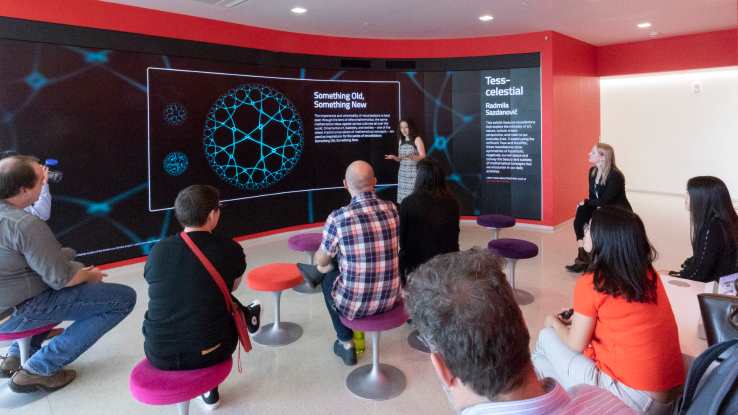
Libraries partners on IMLS grant for open education project

The NC State University Libraries, the Roger Williams University Libraries, and the Open Education Network (OEN) have received a Laura Bush 21st Century Librarian Program award from the Institute of Museum and Library Services (IMLS). Roger Williams University is the lead on the project.
The two libraries will use the two-year, $96,540 IMLS planning grant to develop a “Blueprint for Equitable Open Educational Practices (OEP).” The grant will also support a pilot training program in partnership with the OEN that prepares librarians and faculty to be partners in the adoption of these practices.
As more educators use Open Educational Resources (OER) to make postsecondary education more accessible, academic librarians are in a position to lead faculty in the exploration and implementation of OEP. Librarians Will Cross (Director, Open Knowledge Center & Head of Information Policy, NC State University Libraries) and Lindsey Gumb (Scholarly Communications Librarian, Roger Williams University Libraries), along with Heather Miceli (Faculty Instructor, Roger Williams University), have been conducting research on OEP as Hewlett- and Gates Foundation-funded Open Education Fellows. Their initial research makes it clear that faculty and librarians only “know what they know;” if they are lacking some understanding of (for example) student privacy, copyright, or issues of information privilege, their students may not get the full benefit of learning through OEP, particularly through a social justice lens that allows for more equity-centered practices.
The OEP blueprint and pilot training program will help librarians develop those kinds of skills without losing time and effort in the trial and error process of OER adoption that often happens within disciplinary silos. This project provides expertise and builds an interdisciplinary community of practice with peers who may otherwise lack both the encouragement and the resources to incorporate OEP into their pedagogical practices and professional toolkit.
The project team will also explore the intersection between OEP and critical librarianship that “takes into consideration the social, political, economic, and corporate systems that have power and influence over information production, dissemination, access, and consumption” (ACRL Framework). BIPOC scholars experience barriers to traditional scholarly publishing opportunities. By working together to develop learning opportunities for faculty and librarians to explore the sources of these inequities, examine modern examples, and finally invite their students into these conversations, OEP can help them recognize their own role in systemic inequity by exploring other diverse scholarly circles of information production by non-dominant scholars. Instructors and librarians can use this project’s OEP blueprint for clear models to create positive systemic curricular change.